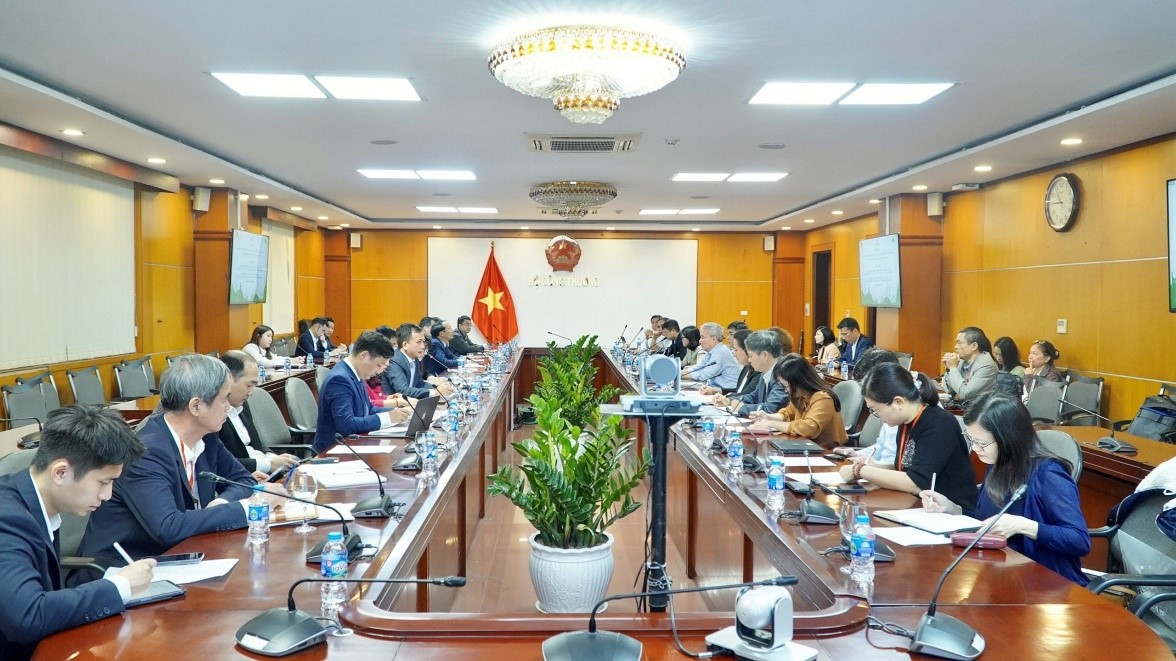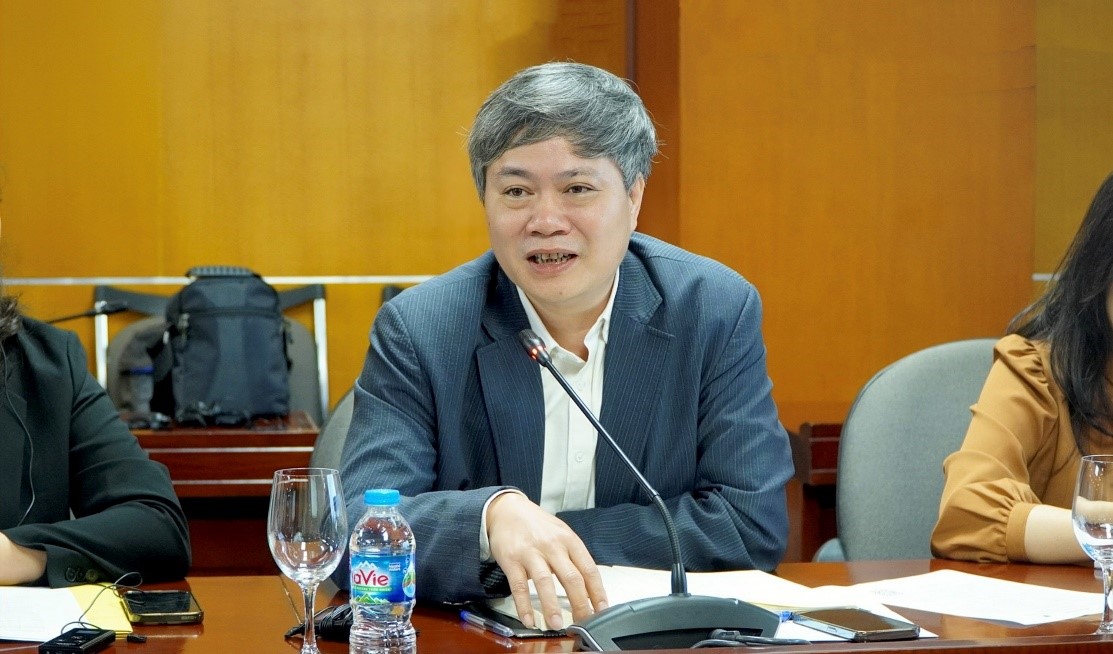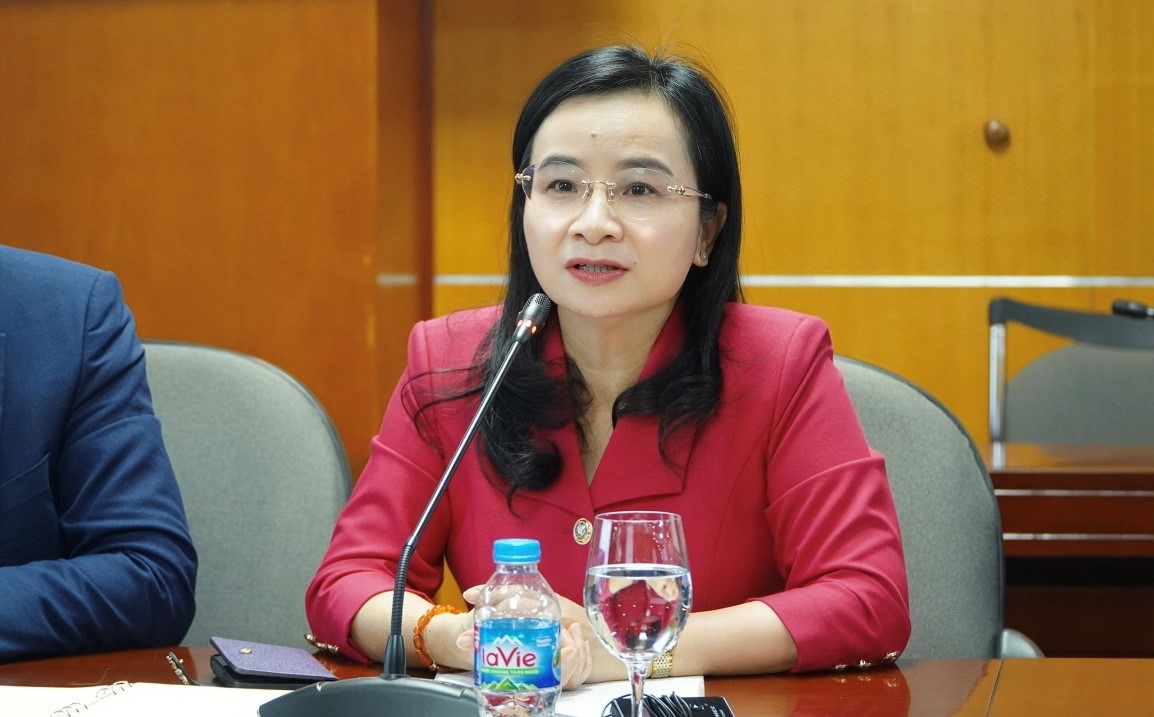The seminar was attended by representatives of MOIT, WB, commercial banks and several industrial enterprises in Vietnam.
Vietnam Scaling Up Energy Efficiency (VSUEE) Project is funded by the Green Climate Fund (GCF) through the World Bank (WB). The project is designed to promote the use of energy efficiency and conservation practices in the industrial sector of Vietnam, contributing to the national goals of energy saving, ensuring energy security, and implementing tasks and objectives for reducing greenhouse gas emissions, in response to climate change.
Seminar "Roundtable on Vietnam’s Energy efficiency: Challenges and opportunities to promote the EE market" is an activity under the framework of VSUEE
At the beginning of the seminar, Mr. Trinh Quoc Vu – Deputy Director of the Department of Energy Efficiency and Sustainable Development (MOIT) affirmed that using energy efficiency and conservation is one of the key solutions to ensure national energy security, conserve resources, and aim for the goal of achieving net-zero emissions by 2050 as committed by Vietnam at the 26th United Nations Climate Change Conference (COP26). Recognizing the importance of using energy efficiently, Vietnam has early issued policies on energy efficiency and conservation, and to date, the legal framework for energy efficiency and conservation in Vietnam is relatively complete. Specifically, in 2010, the Government issued the Law on Energy Efficiency and Conservation. Under this Law, Decrees and guiding documents for its implementation were also timely and comprehensively issued.
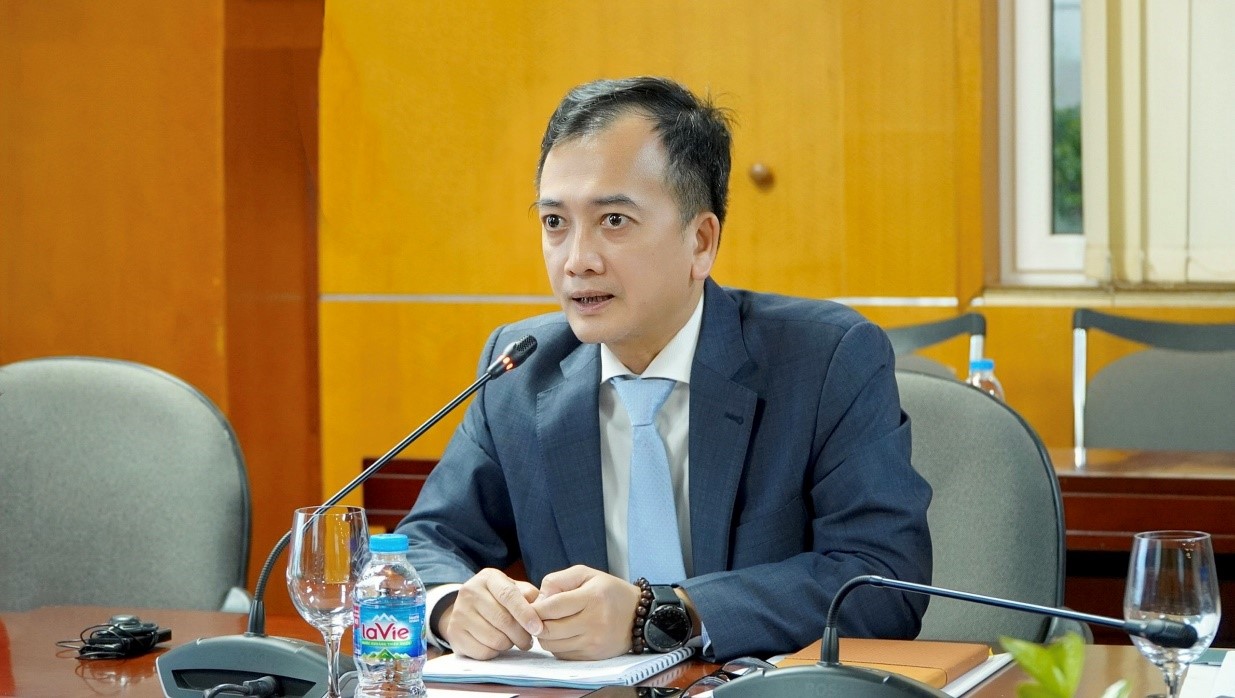
Mr. Trinh Quoc Vu - Deputy Director of the Department of Energy Efficiency and Sustainable Development (MOIT) speeches at the seminar.
In addition, from 2006 to 2015, MOIT implemented the Vietnam National Energy Efficiency Programme (VNEEP). Currently, MOIT is carrying out the VNEEP from 2019 to 2030, in which the Department of Energy Efficiency and Sustainable Development is assigned as the host of the program.
According to Mr. Vu, the potential for energy saving in Vietnam is still very large. The energy intensity of Vietnam is currently higher than many countries in the region and the world. According to the latest energy statistics report of MOIT, the total primary energy intensity of Vietnam is 100 million tons of oil equivalent, with a GDP size of about more than 400 billion USD. This energy usage intensity is four times higher than Japan's, and 50-60% higher than that of countries in the region such as Malaysia or Thailand. This indicates that there is still much work to be done to promote energy efficiency and conservation usage.
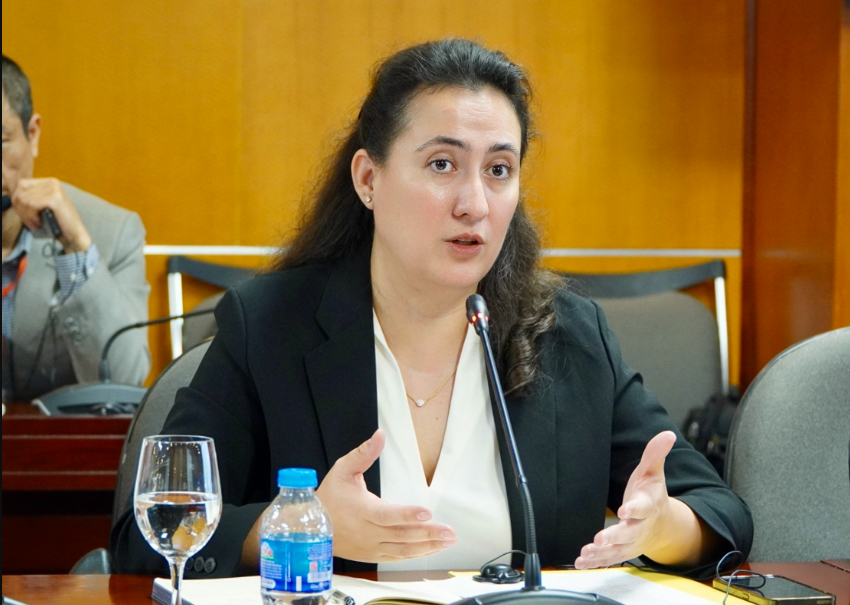
Ms. Zayra Romo - Head of Infrastructure & Energy Sector Coordinator at the World Bank expressed that using energy efficiency and conservation plays an important role.
Ms. Zayra Romo - Head of Infrastructure & Energy Sector Coordinator at the World Bank, expressed that using energy efficiently plays an important role in reducing energy intensity as well as contributing to the process of achieving the goal of net-zero emissions by 2050. This process will undoubtedly face many challenges. However, in recent years, we have also witnessed significant progress, especially the active participation of commercial banks and financial institutions in lending to further promote the use of energy efficiently and saving in Vietnam.
Mr. Chu Ba Thi – Senior Energy Expert at the World Bank shares his opinion in the seminar
Mr. Chu Ba Thi – Senior Energy Expert at the World Bank, noted that although energy saving is considered one of the effective and practical solutions
in ensuring energy security and stabilizing economic development, the reality shows that investment in energy saving in industrial enterprises in general is still not commensurate with the benefits that technological innovation for energy saving brings. Today's seminar will discuss the opportunities, challenges, and solutions to more vigorously promote the transition to an energy efficiency market in Vietnam in the coming time.
Mrs. Ngo Thu Ha - General Director of Sai Gon - Hanoi Joint Stock Commercial (SHB) - RSF Management Unit
Sharing about the process of lending for energy efficiency investment projects, Ms. Ngo Thu Ha – CEO of Saigon - Hanoi Commercial Joint Stock Bank (SHB), mentioned that, alongside the advantages, there are also difficulties. Ms. Ha gave an example that for some energy-saving projects the bank finances technology equipment, these pieces of technology are just a part of the entire system of the enterprise, so the bank has to calculate and evaluate the investment efficiency, payback period, etc., to ensure suitability. Another challenge, according to Ms. Ha, in the current context affected by the Covid-19 pandemic, many enterprises are very cautious before making investment decisions. If capital is abundant, making investment decisions would be more favorable for businesses. Therefore, to better implement projects, Ms. Ha suggested that the World Bank could facilitate more exchanges and support so that banks participating in the project can provide additional assistance to their customers.
At the seminar, delegates had the opportunity to listen to experts introduce Energy Efficiency policy framework and the Technical Support Component of the VSUEE Project. Serving as the Risk Sharing Facility (RSF) Management Unit of the Project, a representative from Saigon - Hanoi Commercial Joint Stock Bank (SHB) provided detailed information about the RSF and its implementation progress. Accordingly, the RSF has a size of 75 million USD from the repayable capital provided by the Green Climate Fund through the World Bank. The Fund was established to provide credit risk mitigation for financial institutions participating in lending for energy-saving investment projects in the form of RSF credit guarantees.
Information about the lending experience for energy efficiency projects, potential energy-saving projects and solutions that businesses will implement in the coming time also were shared and received attention and discussion from the delegates.
VSUEE has been implemented from March 2022 to January 2026 nationwide. The Ministry of Industry and Trade, as the project managing agency, is the unit in charge and responsible for the overall project outcomes. The project includes two components: Component 1 – Operation of the Risk Sharing Facility (RSF): Component 1 has a budget of 75 million USD in non-refundable aid, used to deploy the activities of the Risk Sharing Facility. Component 2 – Technical Support: Component 2 has a budget of 8.3 million USD, used for technical support to enhance the capacity of the project participants, develop and perfect the policy framework, provide implementation guidelines, support energy-saving activities, reduce greenhouse gas emissions, and respond to climate change. |
Duc Do
